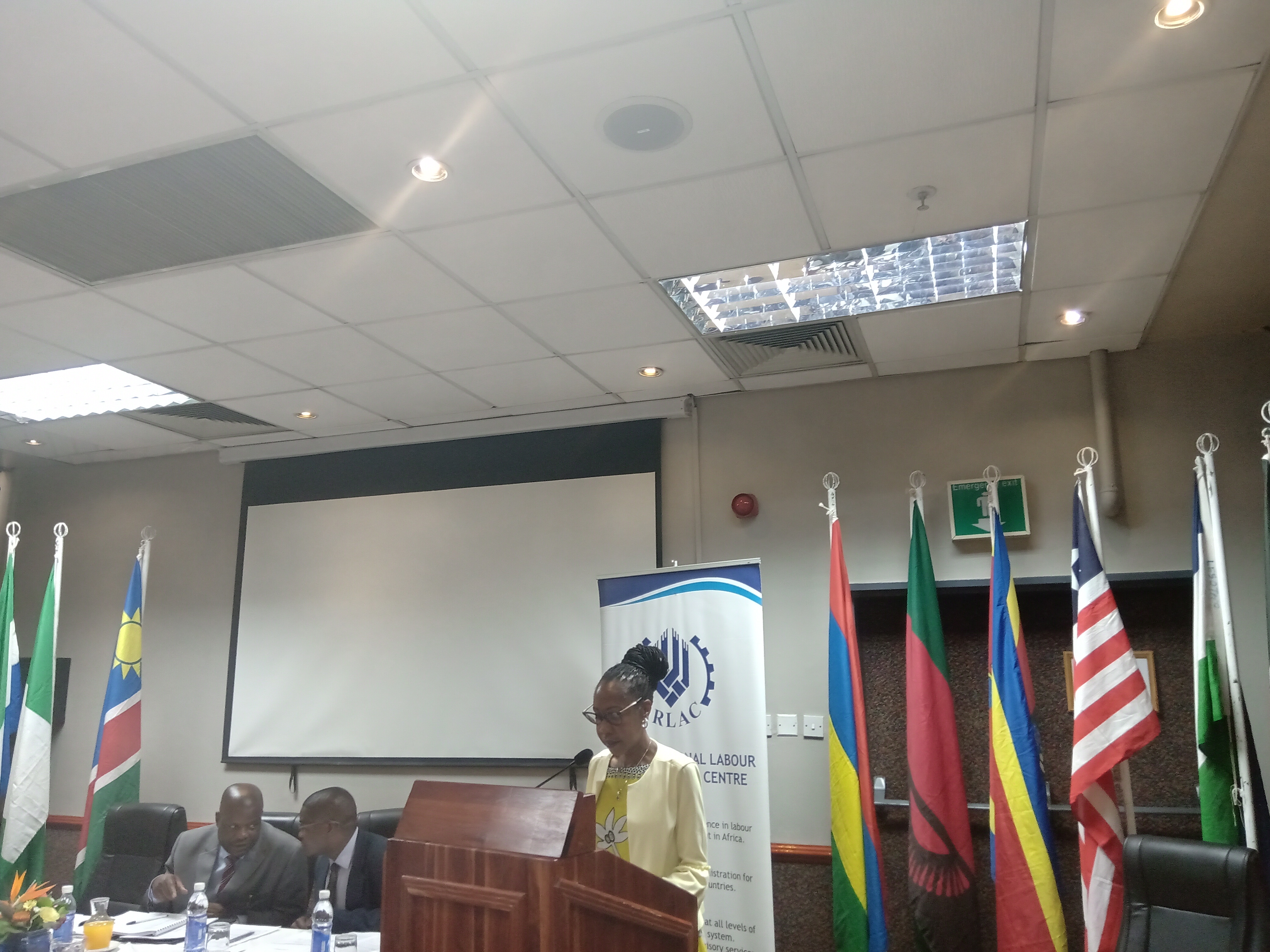The International Labour Organisation (ILO) recognises the important role of labour administration in socio-economic development, a labour expert has said.
Ms Hopolang Phororo, Director of ILO Country Office for Zimbabwe made the remarks on the African Regional Labour Administration Centre (ARLAC)’s 15th Annual Meeting that kicked off in Harare on 8 October 2019.
“This 15th Annual Meeting is being convened in the Centenary year for the ILO and is an opportune moment for us to reflect on the role of labour administration, today and in the future.
“The Centenary year started with the launch of the Global Commission Report on the Future of Work in January, by one of the Co-chairs of the Commission, President Cyril Ramaphosa. Then in South Africa, at the 60th year of the ILO’s presence in Africa and the 45th year of the ARLAC’s existence, President Ramaphosa graced the ARLAC Governing Council in February. The significance of the Report cannot be undermined, given the changes that are happening in the world of work due to advancing technologies, shifting demographics in the youth bulge, climate change and globalisation. It is in response to these changes that the Centenary Declaration for the Future of Work was adopted in June 2019 at the 108th session of the International Labour Conference,” Ms Phororo said.
She said the Declaration commits to a human-centred agenda for the future of work that strengthens the social contract by placing people and the work they do at the centre of economic and social policy and business practice.
The ILO Centenary Declaration’s pillars of action include efforts aimed at increasing investment in people’s capabilities, institutions of work and in decent and sustainable work.
“Increasing investment in the institutions of work aligns very well with the recent efforts to strengthen ALRAC as an institution fit for purpose for its membership. It is in this context that governments, workers and employers, as well as educational institution, have complementary responsibilities to review and build an effective and appropriately financed labour administration system for the future.
“In the different member countries represented here today, centenary events, including symposiums, dialogues and side events have been ongoing to celebrate the achievements of the ILO over the past 100 years. The 14th African Regional Meeting (ARM) will mark the end of the ILO Centenary celebrations in 2019 and will provide the basis for a platform for action towards a better future of work that the ILO constituents want in Africa.”
Ms Phororo highlighted importance of ARM collective action towards the promotion of the Instrument of Amendment of the ILO Constitution, 1986 (the 1986 Amendment) and to ensure the ratification by the remaining six Member States in Africa – Cabo Verde, The Gambia, Sao Tome and Principe, Djibouti, Liberia and Somalia.
In his welcome remarks, Mr. Simon Masanga, the Permanent Secretary in the Ministry of Public Service, Labour and Social Welfare revealed that the meeting follows the Committee of Senior Officials Meeting held from 8 to 11 October 2018 in Zambia.
“The Committee for Senior Officials is an important component of the ARLAC governance system as it consists of the accounting officers vis a vis the Permanent secretaries and Director Generals. It is because of the pivotal role you play in ARLAC that you have been entrusted with the task of interrogating pertinent issues in the running of the centre. This includes reviewing progress on implementation of the resolutions of the previous Governing Council Meeting as well as progress updates on recommendations of the previous senior officials’ meeting.
“Having gone through the programme, I see that we have a mammoth task ahead of us to think outside the box, as we interrogate some of the recommendations and decisions that have a bearing on the financials of the centre. This includes reviewing the organisational structure, the review of member country contributions and the 2020 proposed budget . The meeting will also consider the proposed amendments to the ARLAC Agreement and the rules of procedure as well as the ARLAC host agreement,” Mr. Masanga added.






